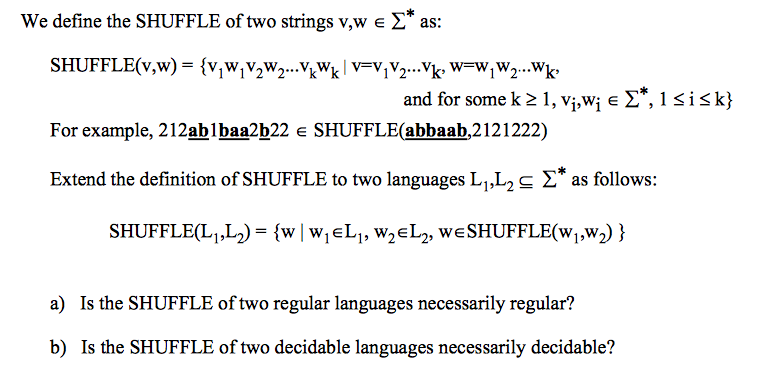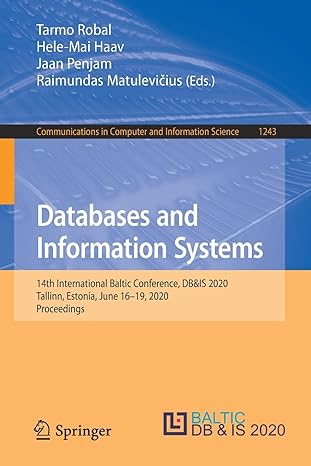Answered step by step
Verified Expert Solution
Question
1 Approved Answer
We define the SHUFFLE of two strings v, w elementof sigma* as: SHUFFLE(v, w) = {v_1 w_1 v_2 w_2 ... v_k w_k|v = v_1 v_2

Step by Step Solution
There are 3 Steps involved in it
Step: 1

Get Instant Access to Expert-Tailored Solutions
See step-by-step solutions with expert insights and AI powered tools for academic success
Step: 2

Step: 3

Ace Your Homework with AI
Get the answers you need in no time with our AI-driven, step-by-step assistance
Get Started


